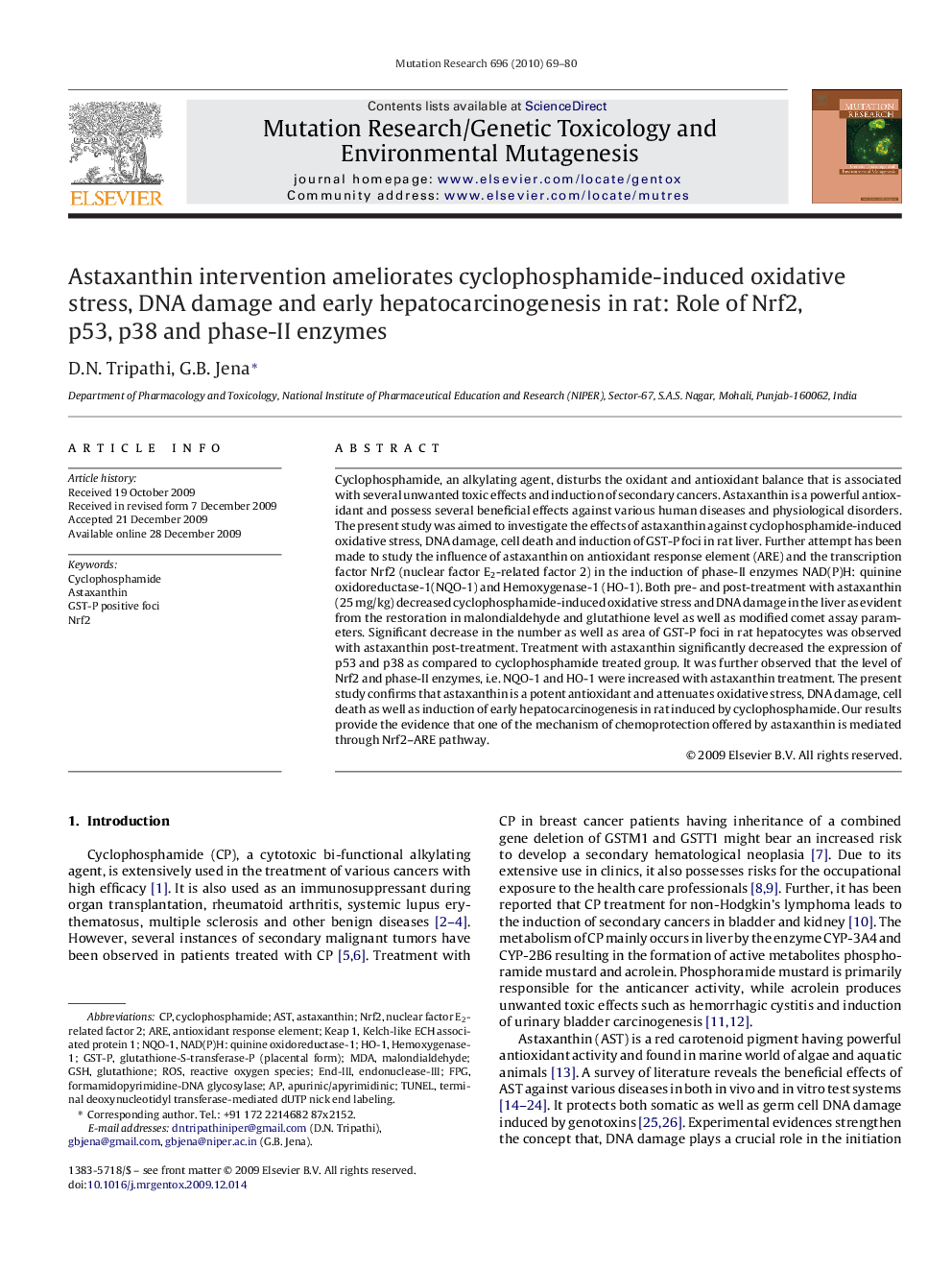| کد مقاله | کد نشریه | سال انتشار | مقاله انگلیسی | نسخه تمام متن |
|---|---|---|---|---|
| 2148534 | 1089568 | 2010 | 12 صفحه PDF | دانلود رایگان |

Cyclophosphamide, an alkylating agent, disturbs the oxidant and antioxidant balance that is associated with several unwanted toxic effects and induction of secondary cancers. Astaxanthin is a powerful antioxidant and possess several beneficial effects against various human diseases and physiological disorders. The present study was aimed to investigate the effects of astaxanthin against cyclophosphamide-induced oxidative stress, DNA damage, cell death and induction of GST-P foci in rat liver. Further attempt has been made to study the influence of astaxanthin on antioxidant response element (ARE) and the transcription factor Nrf2 (nuclear factor E2-related factor 2) in the induction of phase-II enzymes NAD(P)H: quinine oxidoreductase-1(NQO-1) and Hemoxygenase-1 (HO-1). Both pre- and post-treatment with astaxanthin (25 mg/kg) decreased cyclophosphamide-induced oxidative stress and DNA damage in the liver as evident from the restoration in malondialdehyde and glutathione level as well as modified comet assay parameters. Significant decrease in the number as well as area of GST-P foci in rat hepatocytes was observed with astaxanthin post-treatment. Treatment with astaxanthin significantly decreased the expression of p53 and p38 as compared to cyclophosphamide treated group. It was further observed that the level of Nrf2 and phase-II enzymes, i.e. NQO-1 and HO-1 were increased with astaxanthin treatment. The present study confirms that astaxanthin is a potent antioxidant and attenuates oxidative stress, DNA damage, cell death as well as induction of early hepatocarcinogenesis in rat induced by cyclophosphamide. Our results provide the evidence that one of the mechanism of chemoprotection offered by astaxanthin is mediated through Nrf2–ARE pathway.
Journal: Mutation Research/Genetic Toxicology and Environmental Mutagenesis - Volume 696, Issue 1, 1 February 2010, Pages 69–80